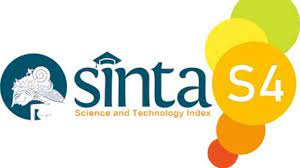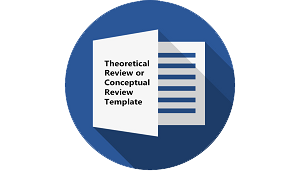Enhancing English Learning Achievement through Problem Based Learning: An Action Research at SMAN 1 Jepara
DOI:
https://doi.org/10.30957/ijoltl.v5i2.620Keywords:
problem based learning, action researchAbstract
This research aims to describe the learning achievements of the English Language through Problem Based Learning (PBL) Model. This study used a two cycle-classroom action research as the design and assigned 30 graders of X Science Class of SMAN 1 Mlonggo Jepara Regency in the year 2018/2019. Each cycle consisted of four stages: planning, implementing, observing, and reflecting. Indicators of success are determined for which the students achieved a minimum 75% of mastery learning after they are exposed to the PBL Model. The research results show (1) the average learning achievement in the first cycle was 6.92 and in the second cycle the cycle was 8.67; (2) minimum mastery learning in the first cycle was 13 (36.11%) and 23 (63.89%) in the second cycle; and (3) completeness in the classical learning in cycle I was 36.11% and 100.00% in cycle. In addition, the students’ participation and motivation after the implementation of PBL increase somewhat 82.4% and of 82.47% students’ states strongly agree to the implementation of PBL model.
Downloads
References
Combs, W. E. (2015). In-Class " Action " Research Benefits Teacher and Students county. 62(6), 267–271.
Fogarty, R. (1997). Problem Based Leraning and Multiple Intelligences Classroom. Melbourne: Hawker Brownlow Education.
Hintz, M. M. C. (2005). Can problem-based learning address content and process? Biochemistry and Molecular Biology Education, 33(5), 363–368. https://doi.org/10.1002/bmb.2005.49403305363Howey, K. R. (2001). Contextual Teachingand Learning Teaching for Understanding ThroughIntregation of AcademicandTechnical Education. Forum, 16(2).
Ibrahim, M., & Nur, M. (2010). Pembelajaran Berdasar Masalah. Surabaya: UNESA.
Moffit. (2002). Pembelajaran Berbasis Masalah (Problem Based Learning). Jakarta: Depdiknas.
Nicholl, T. A., & Lou, K. (2012). A model for small-group problem-based learning in a large class facilitated by one instructor. American Journal of Pharmaceutical Education, 76(6), 1–6. https://doi.org/10.5688/ajpe766117
Pelton, R. P. (2010). Action Research for Teacher Candidates. New York: Rowman &Littlefield Education.
Seng, T. O. (2002). Education Psychology: A Practitioner-Research Approach . New Delhi: Sarups & Son.
Sugiyono. (2012). Metode Penelitian Kuantitatif Kualitatif dan R&D. Bandung: Alfabeta.
Sugiyono. (2016). Metode Penelitian Kuantitatif, Kualitatif dan R& D. Bandung: PT Alfabet.
Pelton, R. P. (2010). Action Research for Teacher Candidates. New York: R&L Education
Rusman. (2011). Model-Model Pembelajaran. Jakarta: PT. Raja Grafindo Persada .
Smith, E. C. A. (1993). Features Section : Problem-Based Learning Biochemica Education 21 ( 1 ) 1993 Department of Biological Sciences. 21(1991), 32–33.
Watson, D. E. (1996). Using problem-based learning to improve educational outcomes. Occupational Therapy International, 3(2), 81–93. https://doi.org/10.1002/oti.29
Downloads
Published
How to Cite
Issue
Section
License
Authors who publish with this journal agree to the following terms:
- Authors retain copyright and grant the journal right of first publication with the work simultaneously licensed under a Creative Commons Attribution-ShareAlike 4.0 International License that allows others to share the work with an acknowledgement of the work's authorship and initial publication in this journal.
- Authors are able to enter into separate, additional contractual arrangements for the non-exclusive distribution of the journal's published version of the work (e.g., post it to an institutional repository or publish it in a book), with an acknowledgement of its initial publication in this journal.
- Authors are permitted and encouraged to post their work online (e.g., in institutional repositories or on their website) prior to and during the submission process, as it can lead to productive exchanges, as well as earlier and greater citation of published work (See The Effect of Open Access).












